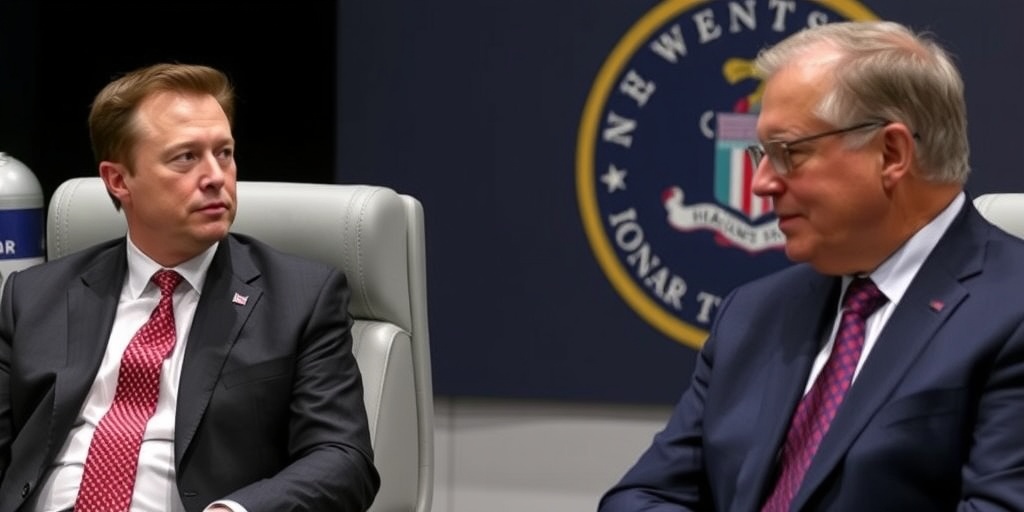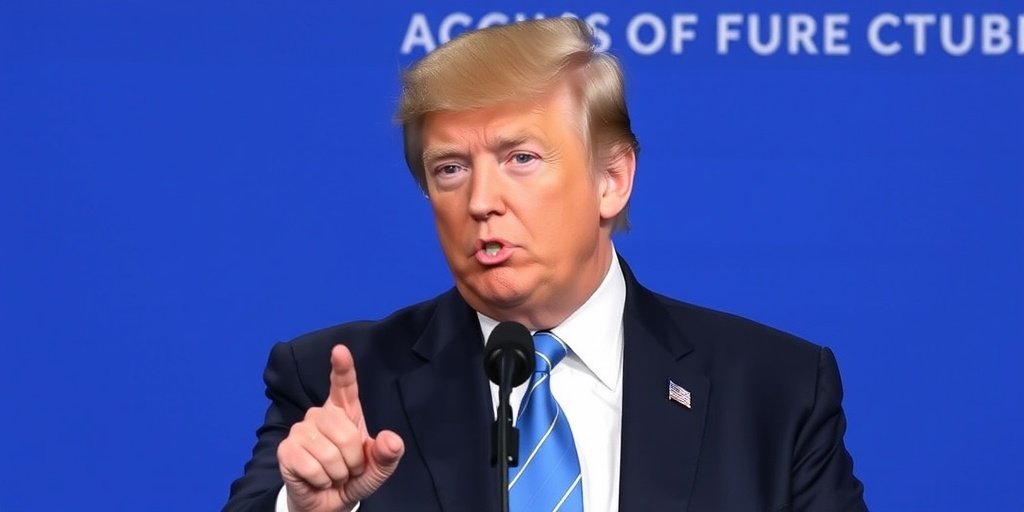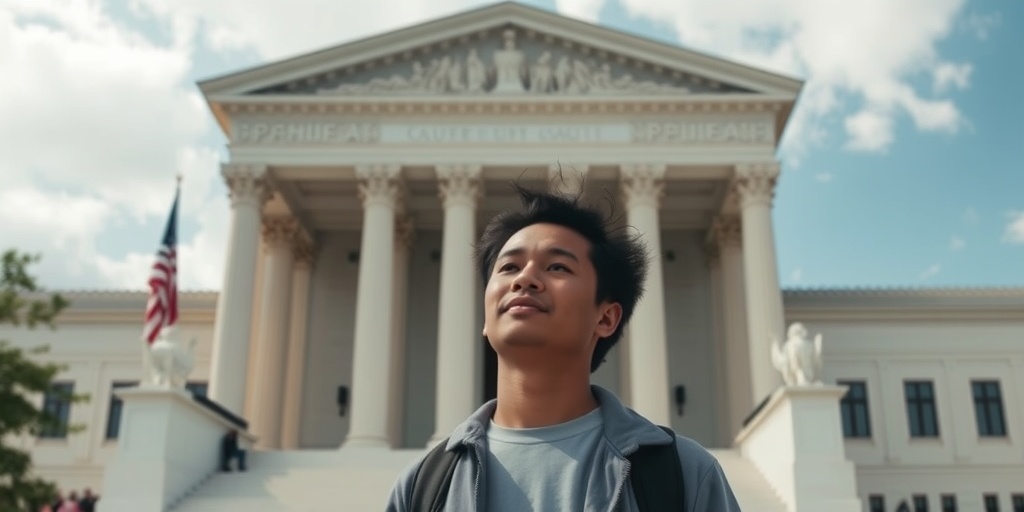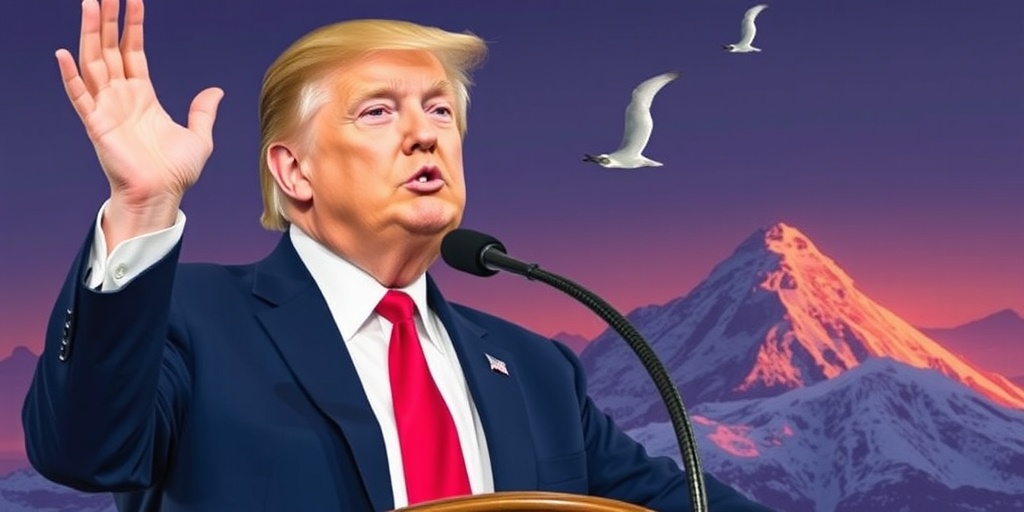Now Reading: Trump’s Executive Order Outlines Potential Path for Retribution
-
01
Trump’s Executive Order Outlines Potential Path for Retribution
Trump’s Executive Order Outlines Potential Path for Retribution
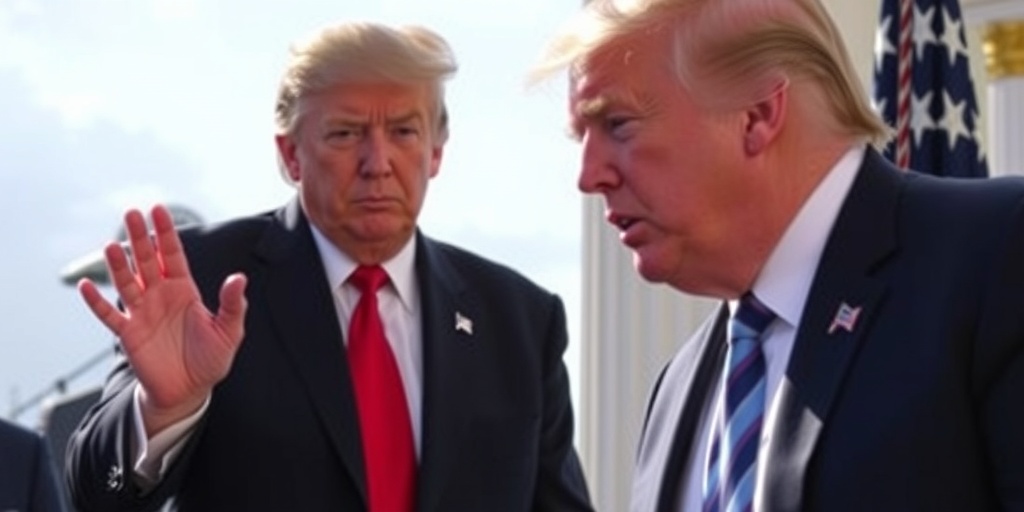
Title: Trump’s New Executive Orders Signal a Shift Towards Retribution Against Perceived Enemies
In a notable shift from prior statements, President Trump has begun to lay the groundwork for potential retribution against those he perceives as adversaries within the government. While he previously asserted that he was “not looking to go into the past,” recent developments indicate a decisive pivot towards confronting individuals in agencies such as the Justice Department and intelligence services over alleged past misconduct.
On his first day back in office, Trump signed an executive order aptly titled “Ending the Weaponization of the Federal Government.” This action aims to hold accountable officials within the Biden administration whom Trump claims have abused their prosecutorial powers in a manner reminiscent of “third-world” regimes. He argues that such actions have undermined democracy itself and created an unjust environment for him and his supporters.
This executive order is characterized by a promise of “justice” against those who Trump contends have wronged him, painting a picture of a leader who sees himself as a victim rather than a perpetrator. This retributive stance contrasts sharply with his earlier rhetoric of moving forward for the sake of national unity.
In conjunction with this order, Trump also sanctioned an unprecedented move to revoke the security clearances of numerous former intelligence officials whom he deems as political opponents. Additionally, he instituted a process that allows the White House to bypass traditional protocols for granting top-secret clearances, enabling rapid access to sensitive information for potential allies within his administration.
Trump’s approach is reminiscent of his first term but appears to carry an intensified focus and deliberate methodicalness. He has indicated a desire to rebalance the scales of justice, asserting that the actions he will start taking are aimed at correcting perceived inequalities that have transpired since he first took office.
Former Deputy National Security Adviser Charles Kupperman characterized the executive order as a potential harbinger of “a retribution campaign” against perceived enemies, arguing that this initiative is not conducive to the nation’s welfare. Kupperman and others have expressed concern that Trump’s fixation on the past will not serve the broader interests of the public but rather appease his core supporters.
While these inquiries directed by Trump may not lead to formal investigations, they could serve as a vehicle for him to publicly malign federal employees, similar to the tactics he utilized in his previous term. Just hours after taking office, Trump revoked Secret Service protection for John R. Bolton, a standout critic within the administration. The decision raised alarms given that Bolton has faced death threats, particularly from foreign adversaries.
Throughout his presidency, Trump has effectively wielded grievances as political tools, characterizing himself as a target of a “deep state” conspiracy that seeks to undermine his leadership. His tenure has been marked by numerous actions aimed at securing what he perceives as justice for his administration, often disregarding norms traditionally associated with presidential conduct.
During his first administration, Trump took several actions that later resulted in investigations into the FBI, including public accusations of misconduct that inflamed partisan tensions. These actions culminated in the appointment of a special prosecutor, John H. Durham, to scrutinize FBI operations related to the 2016 elections. However, the conclusions of the Durham Report fell short of substantiating a “deep state conspiracy,” leading critics to underscore the lack of accountability for high-ranking officials.
Trump’s latest executive actions call for investigations into the practices of the previous administration, focusing on identifying political bias within various agencies, including the Securities and Exchange Commission and the Federal Trade Commission. He has asserted that these past actions diverged from constitutional norms and legal frameworks, further underscoring his narrative of victimhood.
Contrasting these actions, President Biden’s approach upon taking office was notably focused on moving forward rather than rehashing past grievances. His administration opted for a more restrained method of addressing Trump’s prior conduct, emphasizing a restoration of governmental norms over vengeful accountability.
Critics within the Democratic Party have begun to suggest that Biden’s cautious approach may have allowed for a missed opportunity to hold Trump accountable. Some argue that if the Biden administration had adopted a more aggressive stance—similar to the one Trump is championing now—it might have mitigated the ongoing cycles of grievance politics that continue to characterize American political discourse.
As the situation unfolds, with Trump’s call for investigations and his explanation of these actions framed within his victim narrative, the political landscape in the United States appears poised for more intense division. The implications of these developments extend beyond the immediate context of Trump’s presidency, possibly shaping the strategy of political accountability in coming years. The impact of Trump’s executive orders will undoubtedly reverberate through the corridors of power as both parties grapple with the consequences of his presidency and its aftermath.
Stay Informed With the Latest & Most Important News
Previous Post
Next Post
Previous Post
Next Post
-
 01New technology breakthrough has everyone talking right now
01New technology breakthrough has everyone talking right now -
 02Unbelievable life hack everyone needs to try today
02Unbelievable life hack everyone needs to try today -
 03Fascinating discovery found buried deep beneath the ocean
03Fascinating discovery found buried deep beneath the ocean -
 04Man invents genius device that solves everyday problems
04Man invents genius device that solves everyday problems -
 05Shocking discovery that changes what we know forever
05Shocking discovery that changes what we know forever -
 06Internet goes wild over celebrity’s unexpected fashion choice
06Internet goes wild over celebrity’s unexpected fashion choice -
 07Rare animal sighting stuns scientists and wildlife lovers
07Rare animal sighting stuns scientists and wildlife lovers













